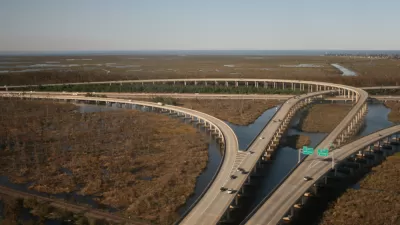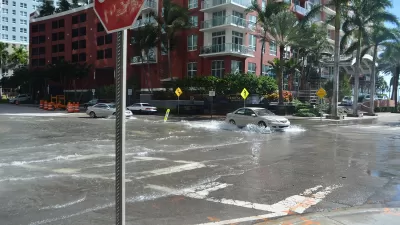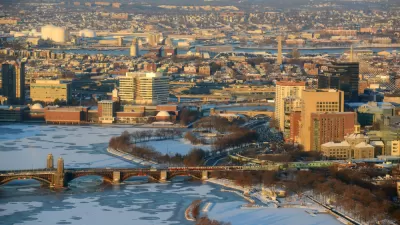The doomsday scenario for sea-level rise in New Jersey is worse than that of almost any other state.

Rising sea levels threaten the entire country, but New Jersey is among the states most vulnerable to its impacts, new research suggests.
Researchers at Climate Central and the National Oceanic and Atmospheric Administration recently concluded that by the year 2100, climate change could raise sea levels around New Jersey by as much as 12 feet. To put that in perspective, scientists have estimated global sea-level rise in the same timeframe at three or six feet.
New Jersey's worst-case scenario would endanger 710,000 people and $199 billion worth of property, the study warns. Sites at risk include the Keansburg Amusement Park, the Asbury Park Convention Hall, Downtown Brick, and the barrier islands.
Visualizations of the Jersey Shore’s potential future are provided on USA Today's site, App.
FULL STORY: Sea level rise in NJ: The nightmare scenario

Trump Administration Could Effectively End Housing Voucher Program
Federal officials are eyeing major cuts to the Section 8 program that helps millions of low-income households pay rent.

Planetizen Federal Action Tracker
A weekly monitor of how Trump’s orders and actions are impacting planners and planning in America.

Ken Jennings Launches Transit Web Series
The Jeopardy champ wants you to ride public transit.

Rebuilding Smarter: How LA County Is Guiding Fire-Ravaged Communities Toward Resilience
Los Angeles County is leading a coordinated effort to help fire-impacted communities rebuild with resilience by providing recovery resources, promoting fire-wise design, and aligning reconstruction with broader sustainability and climate goals.

When Borders Blur: Regional Collaboration in Action
As regional challenges outgrow city boundaries, “When Borders Blur” explores how cross-jurisdictional collaboration can drive smarter, more resilient urban planning, sharing real-world lessons from thriving partnerships across North America.

Philadelphia Is Expanding its Network of Roundabouts
Roundabouts are widely shown to decrease traffic speed, reduce congestion, and improve efficiency.
Urban Design for Planners 1: Software Tools
This six-course series explores essential urban design concepts using open source software and equips planners with the tools they need to participate fully in the urban design process.
Planning for Universal Design
Learn the tools for implementing Universal Design in planning regulations.
Ada County Highway District
Clanton & Associates, Inc.
Jessamine County Fiscal Court
Institute for Housing and Urban Development Studies (IHS)
City of Grandview
Harvard GSD Executive Education
Toledo-Lucas County Plan Commissions
Salt Lake City
NYU Wagner Graduate School of Public Service





























